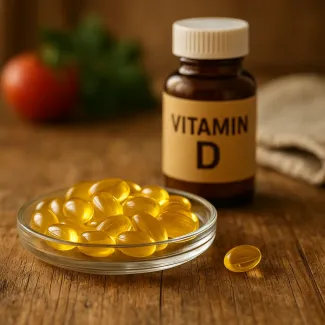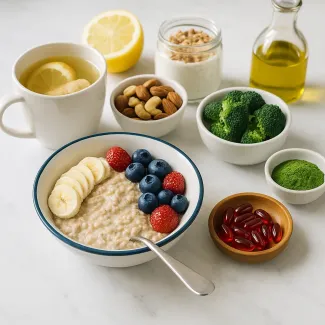Strengthen your body’s natural defense mechanisms.
When Fever Rises and the Nervous System Signals Distress Understanding how sharp pain and high temperature reflect acute nervous activation A sudden spike in temperature…
When Subtle Immune Activation Shapes Everyday Energy Understanding Persistent Fatigue Through the Lens of Low-Grade Inflammation Low-grade inflammation often unfolds quietly, not…
When Warm Sweet Drinks Feel Comforting at Night Understanding the cough reflex and gentle evening habits A night cough often feels louder and more persistent than the same cough…
When low-grade inflammation quietly shapes everyday energy How subtle immune signals can linger beneath daily tiredness Low-grade inflammation is not a dramatic event in the body.…
When brain clarity, digestion, and recovery no longer feel automatic Understanding how Lion’s Mane fits into adult nervous system and gut support In your 20s, mental…
When Gut Support Starts to Matter More Than It Used To Why everyday digestion and immune balance feel different after 30 In your twenties, digestion often felt automatic. You could…
When small skin changes start to linger after 30 How everyday skin signals quietly change with age and routine In your twenties, a small change on the skin often came and went…
Natural strategies to restore optimal vitamin D levels in your daily life How to safely improve your vitamin D status through food, sunlight and smart supplementation Vitamin D…
Recharge Your Body and Mind: Natural Ways to Fight Daily Fatigue Discover lifestyle shifts that renew your energy and support immune resilience Fatigue is no longer just a…








